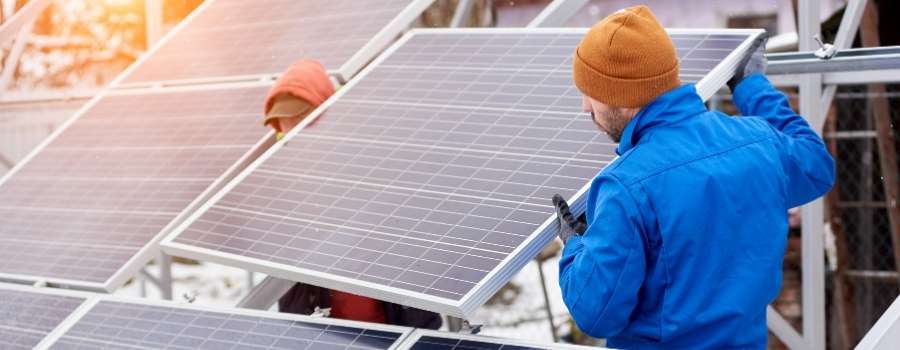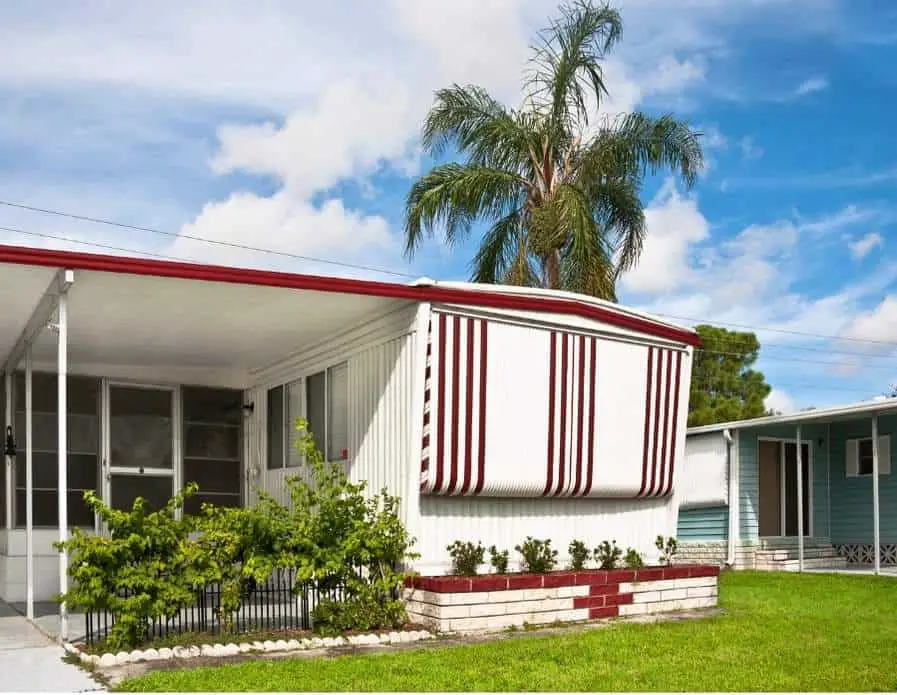
Switching to solar energy is a smart and sustainable choice for homeowners looking to reduce their reliance on traditional power sources. By using the sun’s energy, solar panels can generate clean electricity and help you save money in the long run.
However, before reaping the benefits of solar power, it’s essential to prepare your home appropriately. From assessing your roof’s suitability to finding a reputable installer, there are several crucial steps to take.
In this article, I will provide you with 8 tips to prepare your home for solar panels as well as a comprehensive list of frequently asked questions. By following these tips, you’ll be well-equipped to make the most of your solar investment and enjoy the advantages of renewable energy.
8 Tips to Prepare Your Home for Solar Panels
Table of Contents
1. Do Your Homework
Buying solar panels for your home is a significant, long-term commitment. Don’t forget! You can expect these things to last at least a couple of decades. So, you’ll want to try your best to get things right the first time around.
If you want to be thorough in your ‘due diligence’, be sure to read up on the following ways to prepare your roof for solar panels:
- Research The Manufacturer You’re Buying Your Solar Panels From
- What Kind Of Sunlight Can You Expect In Your Area
- Local Rules And Regulations On Home Solar Energy
- Check From Rebates, Tax Incentives And Other Benefits
- Fix Up Your Roof
- Map Out Any Obstructions On Your Roof
- Inspect Surrounding Trees
- Prepare An Area For Your Solar Gear
2. Research The Manufacturer You’re Buying Your Solar Panels From
In the past few years, a lot of companies have jumped into the solar panel business. So, you’ll want to make sure that you’re buying solar gear from a manufacturer that you can trust.
Be sure to check up on warranty coverage, installation, and after-sales support before you sign up or pay for anything.
Most importantly, try your best to find reviews from previous customers. That way, you can learn from their experiences and figure out whether or not the solar panel manufacturer is a reliable one.
3. What Kind Of Sunlight Can You Expect In Your Area?
Aside from the solar panels and other equipment, it’s also essential to evaluate how much sunlight your home gets regularly. That’s why you should install your solar panels facing north.
Also, try your best to figure out how many hours of sunlight you can expect all-year-round. That should give you a reasonable expectation of how much power you’ll get out of the panels.
Remember, to get the most out of solar panels, you must get as much direct sunlight as possible. So, take a quick walk around your property to see if there’s anything that might stop your future solar panels from getting the sunlight they need.
4. Local Rules And Regulations On Home Solar Energy
Typically, local governments are very supportive of households that want to adopt solar energy. Still, they may have specific rules and regulations surrounding the use of solar panels on your property, especially if it’s a rental property.
To avoid any potential complications later on, it would be a good idea to call them up or check their website. That way, you’ll know about any rules and regulations you need to follow, or perhaps if there are permits that you need to apply for ahead of time.
If your home happens to be in a trailer or mobile home community, you might have some other restrictions you should know about. I go into some details you should check out in this article:
What You Need To Know About Solar Panels On A Mobile Home!

5. Check From Rebates, Tax Incentives, And Other Benefits
As mentioned before, local governments encourage households to get renewable energy. On top of that, so do some utility companies as well.
Sometimes, their support comes in the form of discounts, grants, or some kind of financing program to help you pay for those solar panels.
When it comes to utility companies, they may have some kind of a program where you can sell them any excess energy generated by your solar panels.
How does that work? Well, the utility company may install an additional power meter at your home to see how much energy you’re transmitting back onto the grid. Then, they’ll compensate you for any excess power or use it to offset the power you use from the grid.
So, in a way, your home will start generating cash for you!
That’s why you must do your homework before you purchase your solar panels. Typically, local governments and utility companies have renewable energy initiatives that can benefit you greatly!
6. Fix Up Your Roof
Now that you’ve done your homework and have all the facts you need to know, it’s time to take your preparations to the next level.
First up, start with your roof. If there ever was a perfect time to fix your roof, now’s the time to do it. Replace any tiles that need replacing, sort out any leaks that might exist; fix it up to 100%!
There is a significant reason for this. You see, once you have your solar panels installed on your roof, it’s going to be much more challenging and expensive to perform any other repairs later on.
If your roof is in particularly bad shape or several years old there is a chance you might have to replace the whole thing! Check with a local contractor to see if your roof can handle solar panels and also check out this article that gives more tips on getting your roof ready for solar:
Should You Replace Your Roof Before Going Solar?
So, as mentioned before, now’s the perfect time to sort out any roof issues you have. Best to do it before the solar panels arrive!
7. Map Out Any Obstructions On Your Roof
Aside from repairs, it’s also essential to identify any obstructions you might have on your roof. We’re talking about things like vents, solar tubes for interior lighting and heating, as well as any TV antennas or similar fixtures.
If you have these items on the roof, you might want to consider relocating them as best as possible. Or, at the very least, you’ll need to consider these when it comes to installing your solar panels.
Inspect Surrounding Trees
Now, when you hop aboard the home solar panel train, you’ll want to be very cautious about any big trees surrounding your property.
Trees are a problem for solar panels because of two things. Firstly, it’s because trees might block direct sunlight from reaching the solar cells. If that happens, you’ll generate less power overall.
Secondly, tall trees also mean falling debris. The last thing you want is for branches and leaves to fall onto your brand new solar panels. Not only will that block sunlight from getting through, but it could also cause damage to the solar panels that’ll cost you a lot to fix.
That’s not something you’ll be doing just one time, by the way. Trees tend to grow like… well… like trees. So, you’ll have to check your trees periodically to make sure they’re not blocking your solar panels in the future.
8. Prepare An Area For Your Solar Gear
Last but not least, let’s talk about how you can prepare your home’s interior for solar panels. In case you’ve forgotten, solar panels are just one part of the solar energy equation.
On the exterior of your home, you’ll have the solar panels and the racking system that mounts it to your roof. On the interior, however, you’ll have wiring, the inverter, and a solar power battery (if you choose to get one).
With that in mind, one more thing you can do to prepare is to clear a space where you can place the inverter and the optional battery.
Some people might choose to locate that gear in the basement. However, it might be a better idea to put it somewhere that’s more accessible like your garage or another unused corner of the ground floor. Somewhere out of sight, but also nearby.
Frequently Asked Questions
What Are the Benefits of Installing Solar Panels in My Home?
Installing solar panels in your home can reduce your electricity bills, decrease your carbon footprint, and potentially generate income through net metering or solar feed-in tariffs.
Do I Need to Have a Specific Type of Roof for Solar Panel Installation?
While various roof types can accommodate solar panels, roofs with a south-facing orientation and minimal shading tend to be most suitable for optimal energy production.
How Much Space Do I Need on My Roof for Solar Panels?
The amount of space required depends on factors such as your energy needs and the efficiency of the solar panels. On average, a 1 kW solar panel system needs approximately 100 square feet of space.
Will Installing Solar Panels Increase the Value of My Home?
Yes, installing solar panels can increase the value of your home. Studies have shown that homes with solar panels tend to sell at a premium compared to homes without them.
How Do I Find a Reputable Solar Panel Installer?
You can find a reputable solar panel installer by researching online, reading customer reviews, seeking recommendations from friends or family, and verifying their credentials and certifications.
What Maintenance Is Required for Solar Panels?
Solar panels generally require minimal maintenance. Regular cleaning to remove dirt and debris, as well as occasional inspection for any damage or shading issues, is usually sufficient.
Can I Install Solar Panels Myself, or Do I Need a Professional?
While it is technically possible to install solar panels yourself, it is recommended to hire a professional solar panel installer. They have the expertise to ensure proper installation and handle any necessary electrical work.
Will Installing Solar Panels Affect My Homeowner’s Insurance?
Typically, installing solar panels may require you to inform your homeowner’s insurance provider. In most cases, it does not significantly affect your insurance, but it’s advisable to check with your provider to confirm any policy changes or requirements.
How Long Do Solar Panels Typically Last?
Solar panels have a lifespan of 25 to 30 years on average. However, their performance may degrade slightly over time, resulting in a gradual decrease in energy production.
What Happens to Solar Panels During a Power Outage?
During a power outage, standard grid-tied solar panel systems without energy storage (batteries) will also shut down to ensure the safety of utility workers. However, some solar panel systems equipped with batteries can continue to provide electricity during an outage.
